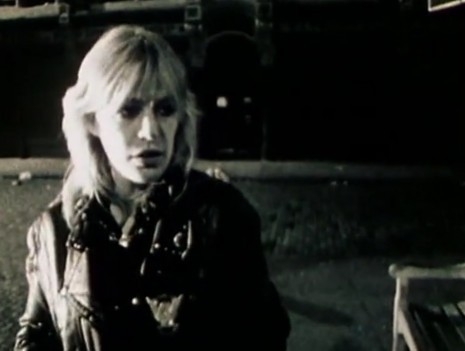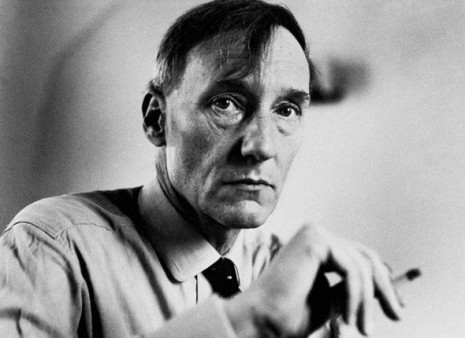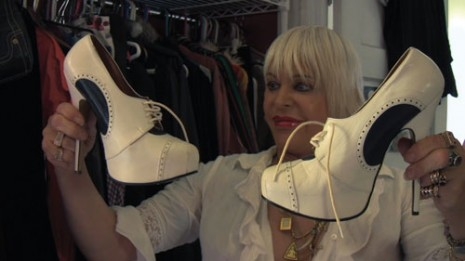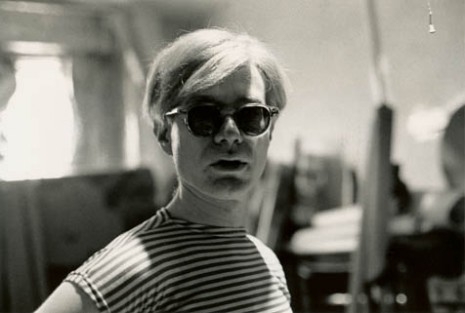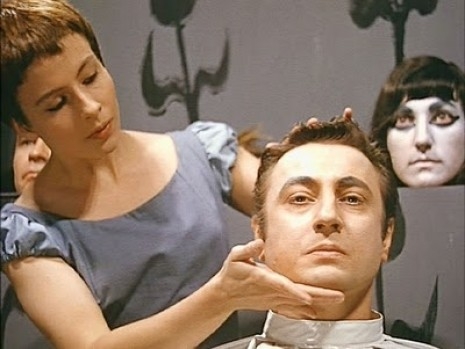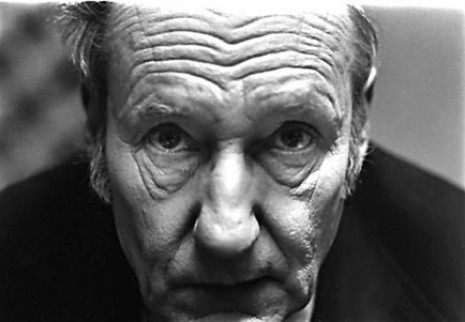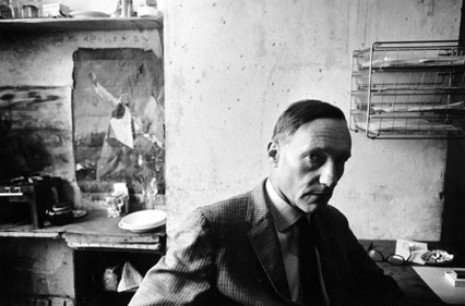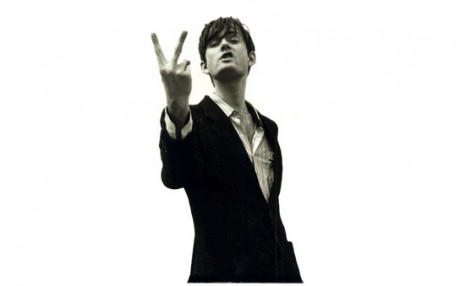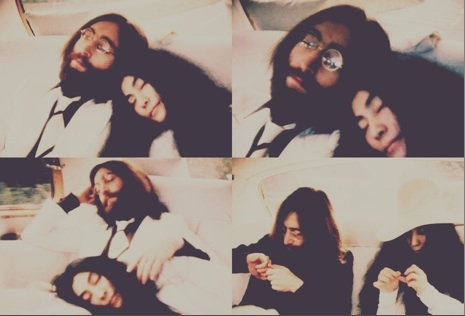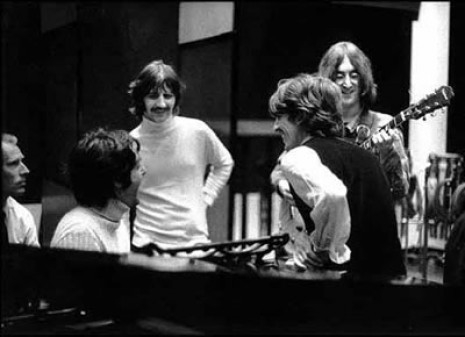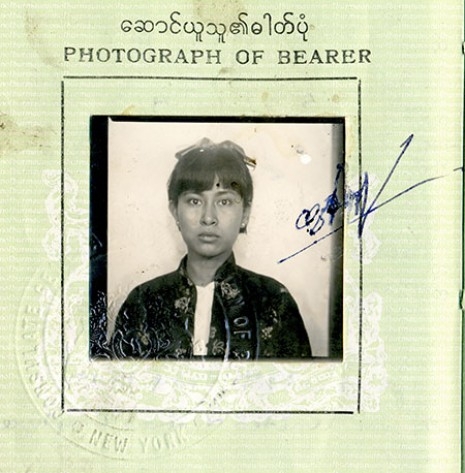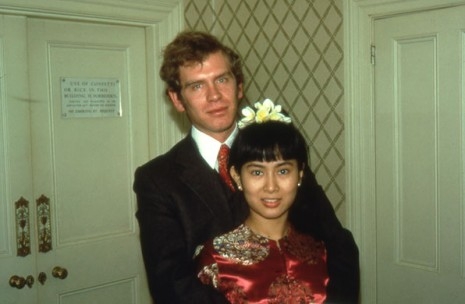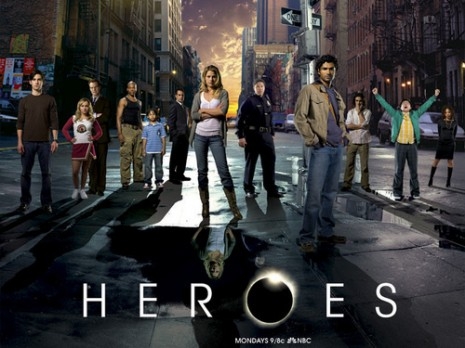INTERVIEWER: When and why did you start to write?
BURROUGHS: I started to write in about 1950; I was thirty-five at the time; there didn’t seem to be any strong motivation. I simply was endeavoring to put down in a more or less straightforward journalistic style something about my experiences with addiction and addicts.
INTERVIEWER: Why did you feel compelled to record these experiences?
BURROUGHS: I didn’t feel compelled. I had nothing else to do. Writing gave me something to do every day. I don’t feel the results were at all spectacular. Junky [sic] is not much of a book, actually. I knew very little about writing at that time.
INTERVIEWER: Where was this?
BURROUGHS: In Mexico City. I was living near Sears, Roebuck, right around the corner from the University of Mexico. I had been in the army four or five months and I was there on the GI Bill, studying native dialects. I went to Mexico partly because things were becoming so difficult with the drug situation in America. Getting drugs in Mexico was quite easy, so I didn’t have to rush around, and there wasn’t any pressure from the law.
INTERVIEWER: Why did you start taking drugs?
BURROUGHS: Well, I was just bored. I didn’t seem to have much interest in becoming a successful advertising executive or whatever, or living the kind of life Harvard designs for you. After I became addicted in New York in 1944, things began to happen. I got in some trouble with the law, got married, moved to New Orleans, and then went to Mexico.
INTERVIEWER: There seems to be a great deal of middle-class voyeurism in this country concerning addiction, and in the literary world, downright reverence for the addict. You apparently don’t share these points of view.
BURROUGHS: No, most of it is nonsense. I think drugs are interesting principally as chemical means of altering metabolism and thereby altering what we call reality, which I would define as a more or less constant scanning pattern.
INTERVIEWER: What do you think of the hallucinogens and the new psychedelic drugs - LSD-25?
BURROUGHS: I think they’re extremely dangerous, much more dangerous than heroin. They can produce overwhelming anxiety states. I’ve seen people try to throw themselves out of windows; whereas the heroin addict is mainly interested in staring at his own toe. Other than deprivation of the drug, the main threat to him is an overdose. I’ve tried most of the hallucinogens without an anxiety reaction, fortunately. LSD-25 produced results for me similar to mescaline. Like all hallucinogens, LSD gave me an increased awareness, more a hallucinated viewpoint than any actual hallucination. You might look at a doorknob and it will appear to revolve, although you are conscious that this is the result of the drug. Also, van Goghish colors, with all those swirls, and the crackle of the universe.
INTERVIEWER: Have you read Henri Michaux’s book on mescaline?
BURROUGHS: His idea was to go into his room and close the door and hold in the experiences. I had my most interesting experiences with mescaline when I got outdoors and walked around - colors, sunsets, gardens. It produces a terrible hangover, though, nasty stuff. It makes one ill and interferes with coordination. I’ve had all the interesting effects I need, and I don’t want any repetition of those extremely unpleasant physical reactions.
INTERVIEWER: The visions of drugs and the visions of art don’t mix?
BURROUGHS: Never. The hallucinogens produce visionary states, sort of, but morphine and its derivatives decrease awareness of inner processes, thoughts, and feelings. They are painkillers, pure and simple. They are absolutely contraindicated for creative work, and I include in the lot alcohol, morphine, barbiturates, tranquilizers - the whole spectrum of sedative drugs. As for visions and heroin, I had a hallucinatory period at the very beginning of addiction, for instance, a sense of moving at high speed through space. But as soon as addiction was established, I had no visions - vision - at all and very few dreams.
INTERVIEWER: Why did you stop taking drugs?
BURROUGHS: I was living in Tangier in 1957, and I had spent a month in a tiny room in the Casbah staring at the toe of my foot. The room had filled up with empty Eukodol cartons; I suddenly realized I was not doing anything. I was dying. I was just apt to be finished. So I flew to London and turned myself over to Dr. John Yerbury Dent for treatment. I’ve heard of his success with apomorphine treatment. Apomorphine is simply morphine boiled in hydrochloric acid; it’s nonaddictive. What the apomorphine did was to regulate my metabolism. It’s a metabolic regulator. It cured me physiologically. I’d already taken the cure once at Lexington, and although I was off drugs when I got out, there was a physiological residue. Apomorphine eliminated that. I’ve been trying to get people in this country interested in it, but without much luck. The vast majority - social workers, doctors - have the cop’s mentality toward addiction. A probation officer in California wrote me recently to inquire about the apomorphine treatment. I’ll answer him at length. I always answer letters like that.
INTERVIEWER: Have you had any relapses?
BURROUGHS: Yes, a couple. Short. Both were straightened out with apomorphine, and now heroin is no temptation for me. I’m just not interested. I’ve seen a lot of it around. I know people who are addicts. I don’t have to use any willpower. Dr. Dent always said there is no such thing as willpower. You’ve got to reach a state of mind in which you don’t want it or need it.
INTERVIEWER: You regard addiction as an illness but also a central human fact, a drama?
BURROUGHS: Both, absolutely. It’s as simple as the way in which anyone happens to become an alcoholic. They start drinking, that’s all. They like it, and they drink, and then they become alcoholic. I was exposed to heroin in New York - that is, I was going around with people who were using it; I took it; the effects were pleasant. I went on using it and became addicted. Remember that if it can be readily obtained, you will have any number of addicts. The idea that addiction is somehow a psychological illness is, I think, totally ridiculous. It’s as psychological as malaria. It’s a matter of exposure. People, generally speaking, will take any intoxicant or any drug that gives them a pleasant effect if it is available to them. In Iran, for instance, opium was sold in shops until quite recently, and they had three million addicts in a population of twenty million. There are also all forms of spiritual addiction. Anything that can be done chemically can be done in other ways, that is, if we have sufficient knowledge of the processes involved. Many policemen and narcotics agents are precisely addicted to power, to exercising a certain nasty kind of power over people who are helpless. The nasty sort of power: white junk, I call it - rightness; they’re right, right right - and if they lost that power, they would suffer excruciating withdrawal symptoms. The picture we get of the whole Russian bureaucracy, people who are exclusively preoccupied with power and advantage, this must be an addiction. Suppose they lose it? Well, it’s been their whole life.
